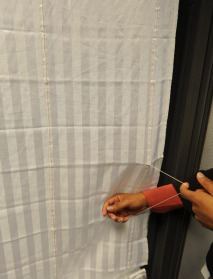
How many hoops should you have to jump through to get justice? It’s a fair question that many people struggle with. Recently, the CEO of a Georgia medical services company suggested in a guest column in the Atlanta Journal and Consitution on Friday, January 8, 2010, that to be really sure that Georgians who have been harmed by negligent medical care are worthy of justice we should subject them to one more hoop. Not coincidentally, it’s a hoop that benefits only medical professionals and insurance companies – the only two interest groups that profit when injured patients are prevented from securing justice.
What this CEO has proposed is that, instead of allowing victims of medical malpractice the same Constitutional Right to Trial by Jury enjoyed by all other Georgians, people harmed by medical malpractice would have to get permission to have a jury trial from a “screening panel” comprised of members of the medical and insurance industries, the same entities that want to avoid compensating injured patients. This approach is wrong and adds an unnecessary, ineffective layer to our civil justice system.
The fact is all medical malpractice cases brought in Georgia have already been through multiple screening hoops. The first hoop is that you have to have had something very bad happen as a result of malpractice. Your next hoop is that you have to find a lawyer willing and able to take your case. That lawyer will tell you that there is another, special hoop that protects only professionals charged with negligence. In order to pass through that hoop, the patient must find a medical professional willing to publicly criticize their colleague and sign a document swearing that malpractice happened. So far your case has been screened three times: Something bad happens. You find a lawyer who will invest in helping you find justice. And, you find another doctor who agrees that there was malpractice and is willing to say so. Then there’s a fourth screening before you can have a jury hear your case: the judge must screen the case, too.

 Atlanta Injury Lawyer Blog
Atlanta Injury Lawyer Blog





















